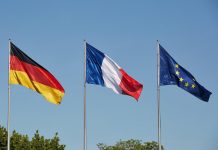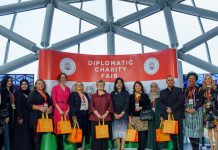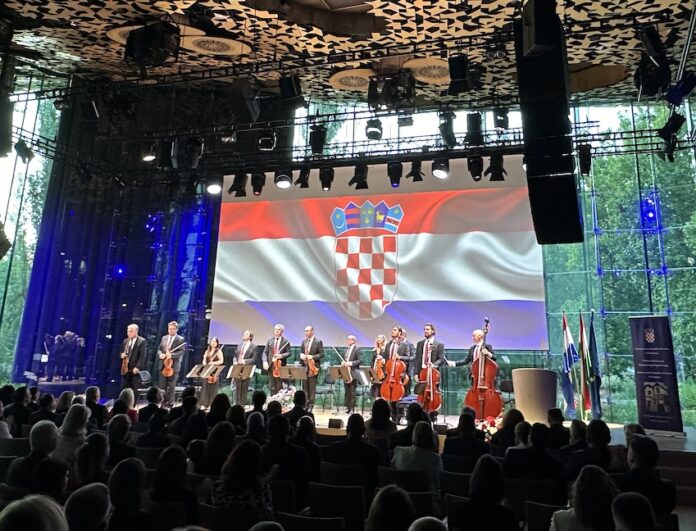“Croatia enjoys the benefits of EU and NATO prosperity and security”
Edited by Anna Popper
30 May 1990 is a pivotal moment in Croatia’s modern history. On this day, the first democratically elected Croatian Parliament was established, paving the way for freedom and independence and the creation of a sovereign Croatian state. This event laid the foundation for the country’s democratic transformation.
In 2023, the Republic of Croatia celebrated the 10th anniversary of its membership in the European Union, which brought numerous benefits, including stability, progress, and security. In 2024, Croatia marks the 15th anniversary of joining NATO. Over the last decade, Croatia has achieved remarkable success, establishing itself as a credible member of both the EU and NATO. These accomplishments were crowned by Croatia’s accession to the Eurozone and the Schengen Area in January 2023.
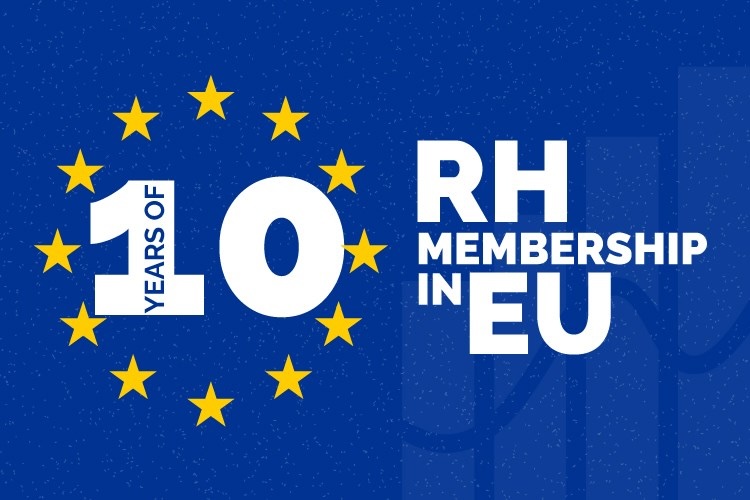
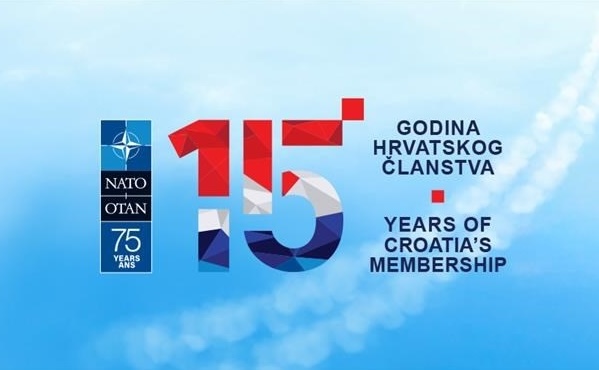
Reflecting on this challenging journey, Croatians have every reason to be immensely proud of their nation’s achievements. Croatia has undergone profound transformation in a relatively short time, improving all aspects of life and earning well-deserved recognition from the global community. The nation today enjoys international respect, occupies a strong position at the heart of Europe and actively participates in EU decision-making processes. The global community recognizes Croatia, its people and its leadership for their impressive progress and the prominent role the country now plays on the international stage.
“Croatia’s European story – is a success story. It gives hope. It shows results.” – said Roberta Metsola, President of the European Parliament, during a meeting with the Prime Minister of Croatia Andrej Plenković.
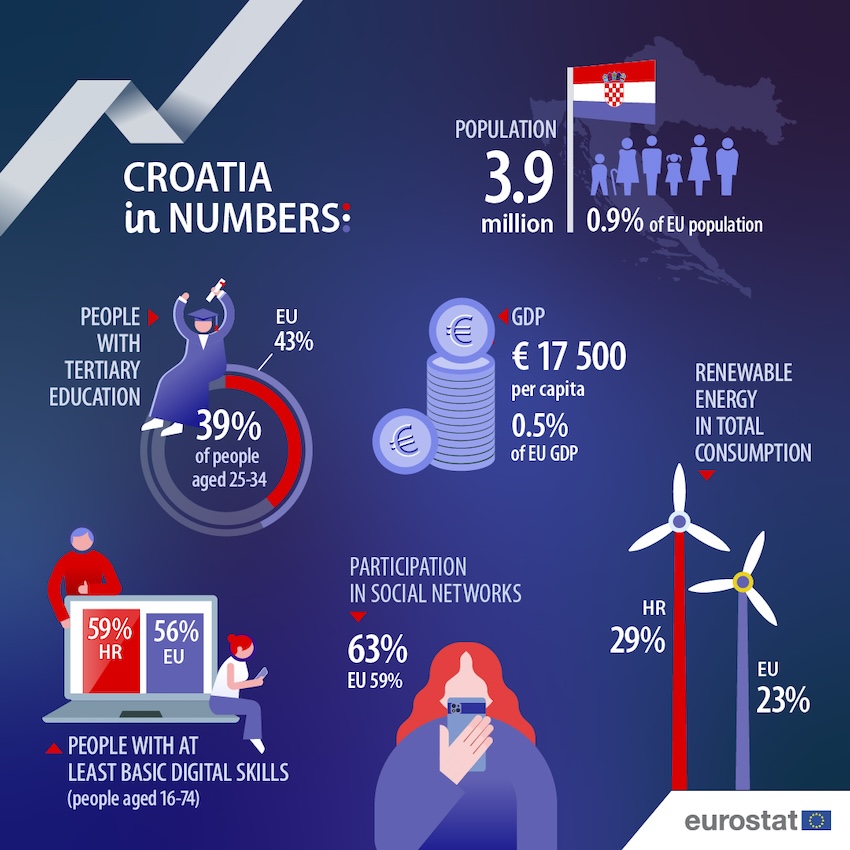
To mark this significant anniversary, His Excellency Mladen Andrlić, Ambassador of the Republic of Croatia to Hungary and Mrs. Sandra Andrlić hosted a grand celebration with a concert and reception at the Hungarian House of Music in Budapest, highlighting the unique architecture of the venue, designed by the renowned Japanese architect Sou Fujimoto. This extraordinary building, dedicated to the most universal language of humanity – music in all its forms – has rapidly become a new city landmark, garnering numerous international awards.
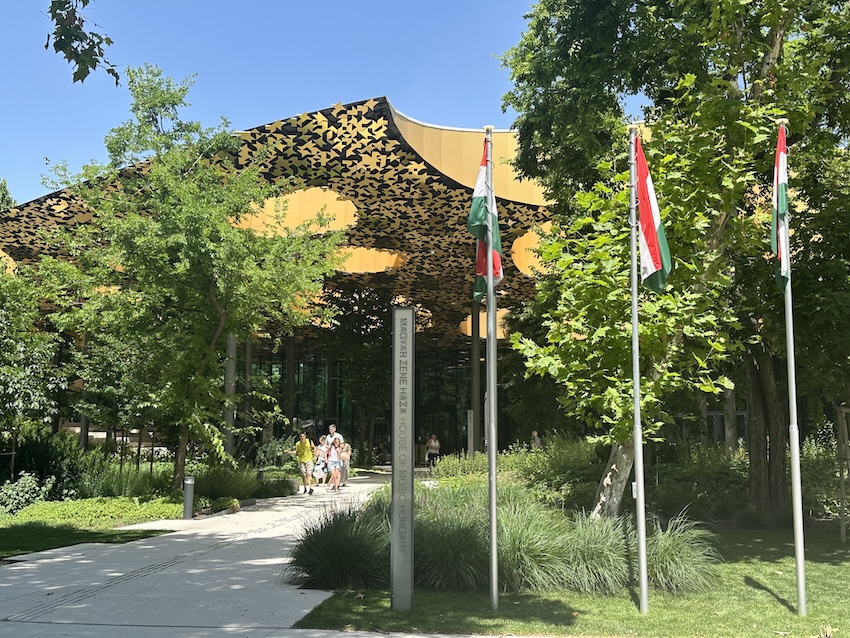
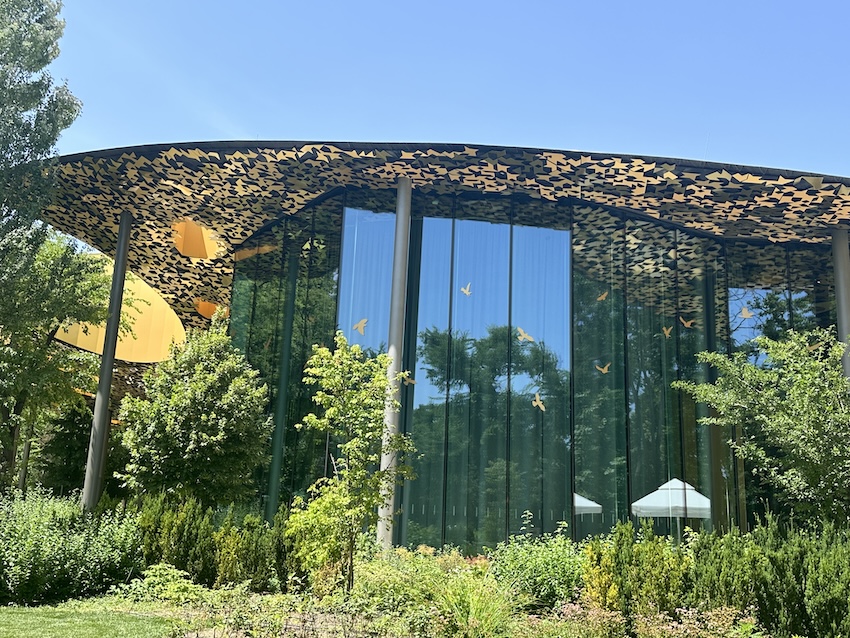
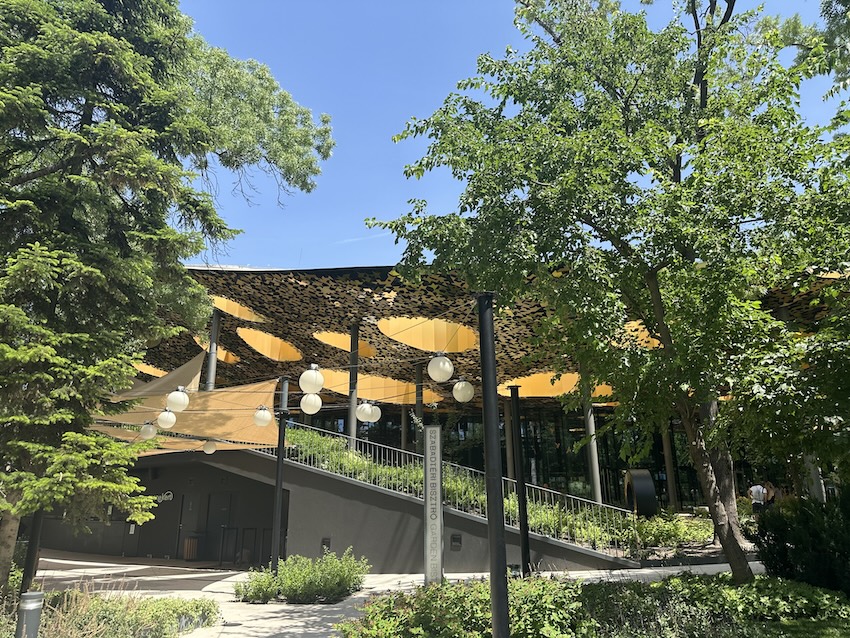
The ceremony commenced with the rendition of the national anthems of Croatia, Hungary and the European Union.






Ambassador Mladen Andrlić warmly welcomed the large number of attendees: members of the diplomatic corps, representatives of the political, social, cultural, academic and business circles, friends of Croatia, Croatian nationals, including the Guests of Honour, Mr. Tibor Navracsics, Hungarian Minister for Regional Development and EU Funds, and Ms. Vanda Babić Galić, Special Envoy of the Croatian Minister of Foreign and European Affairs.
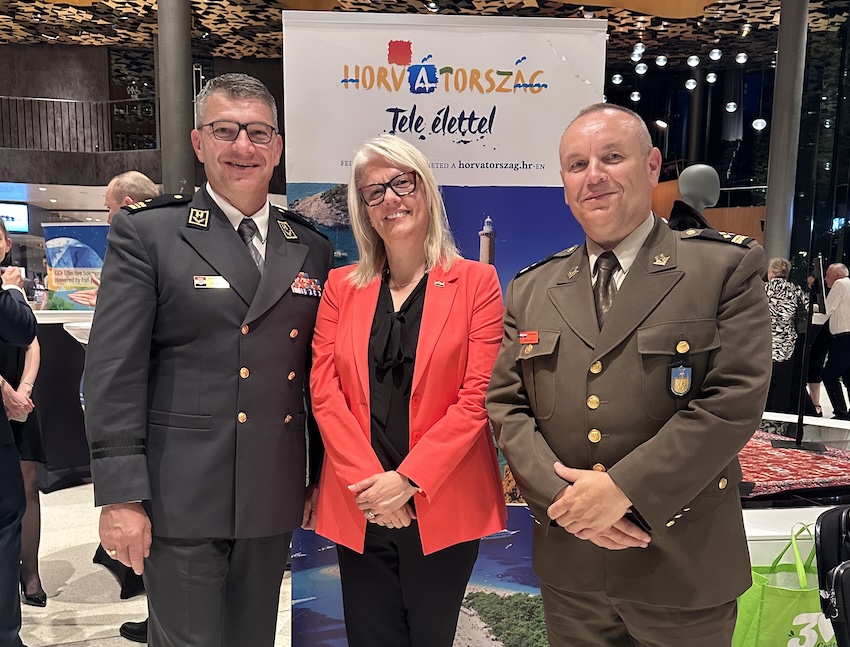
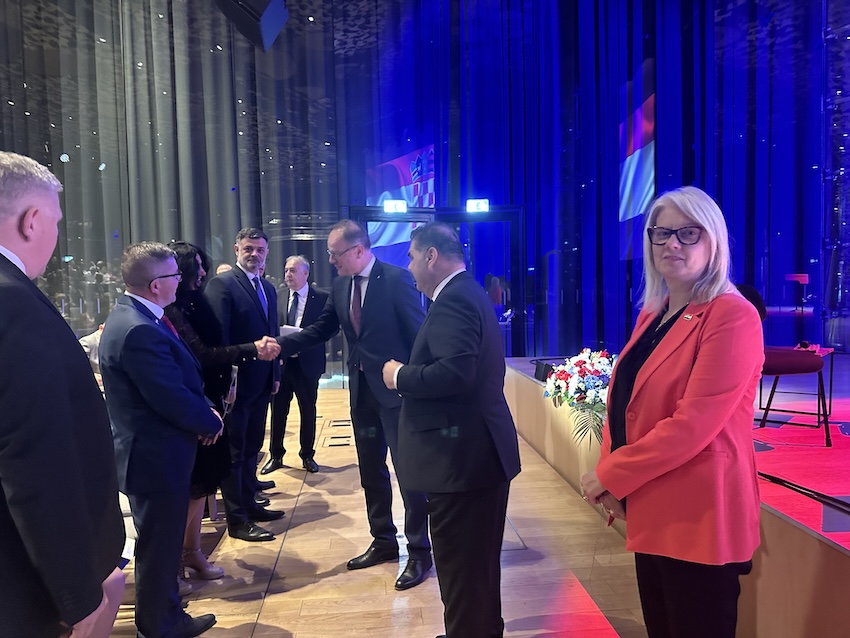
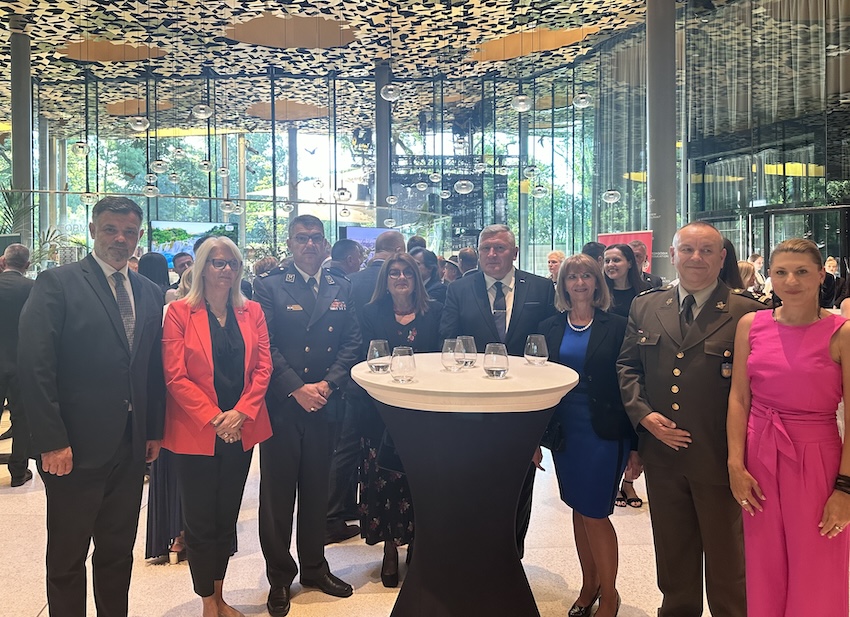
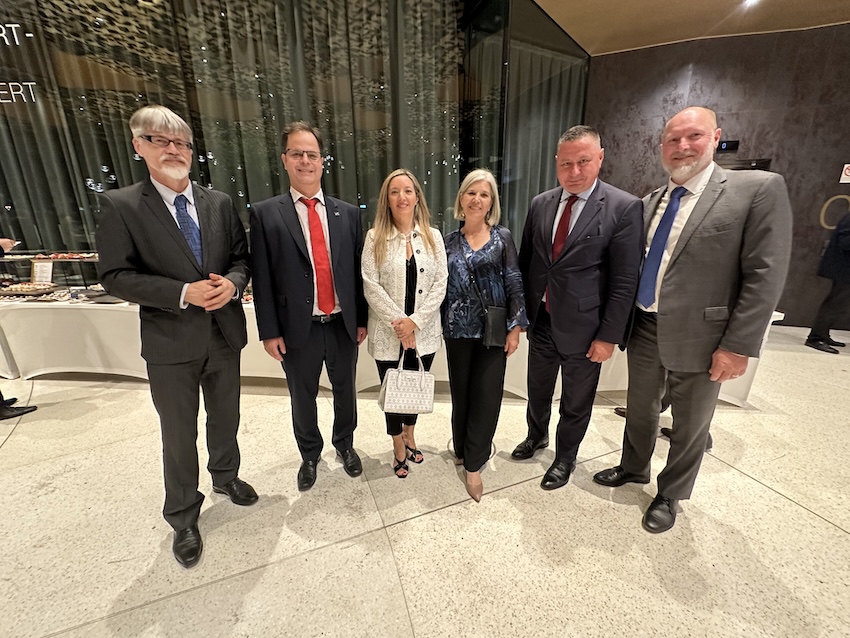
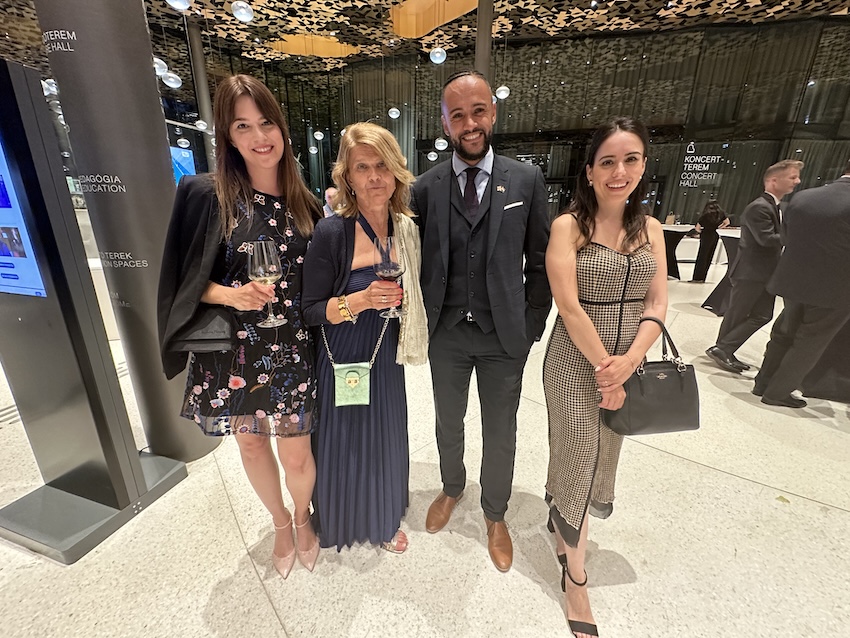
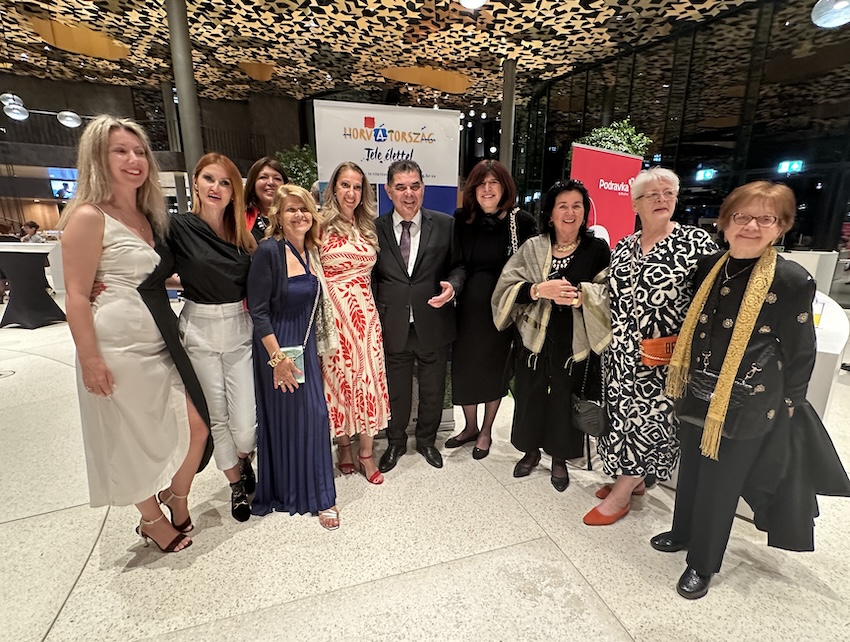
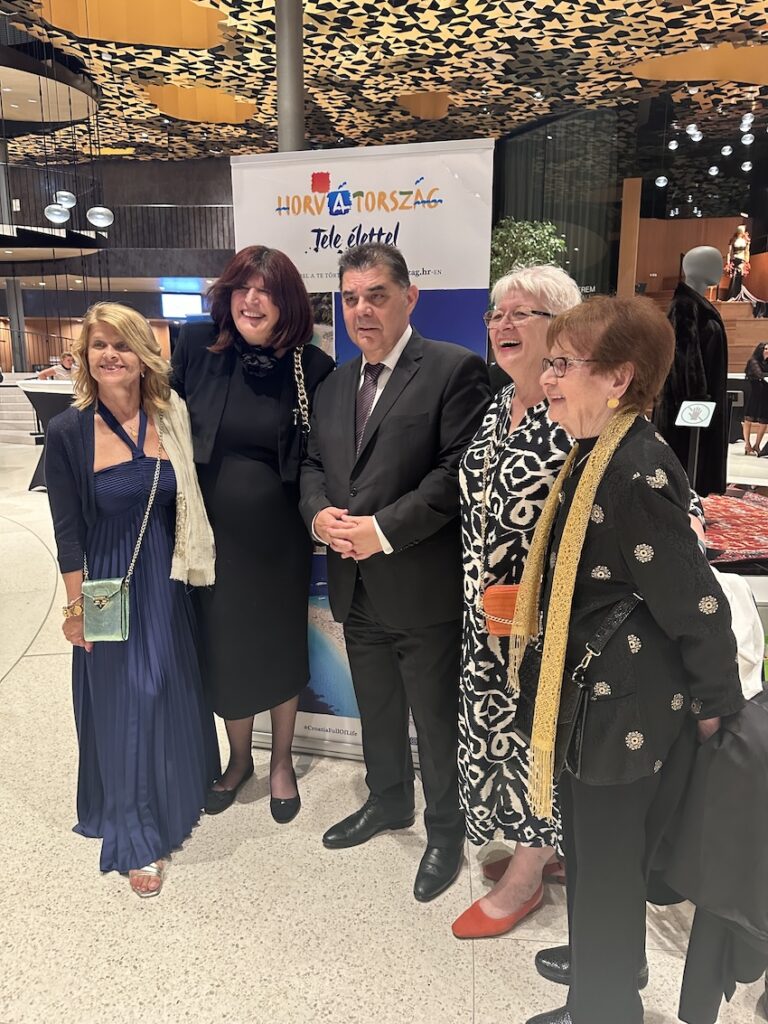
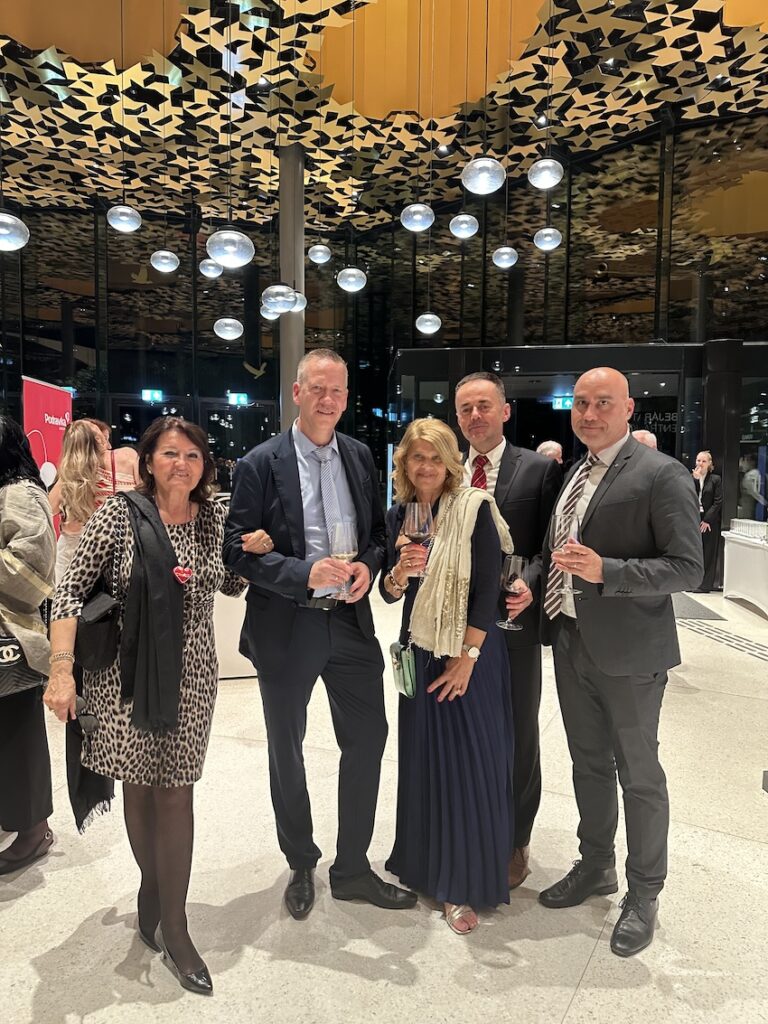
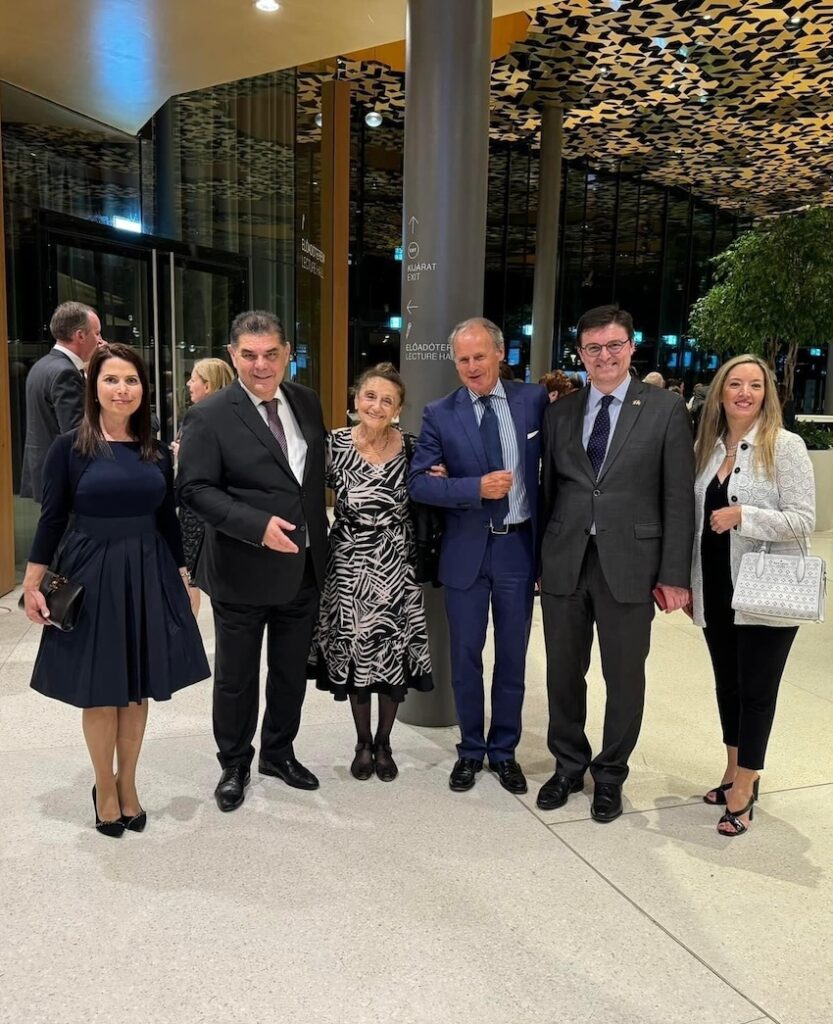
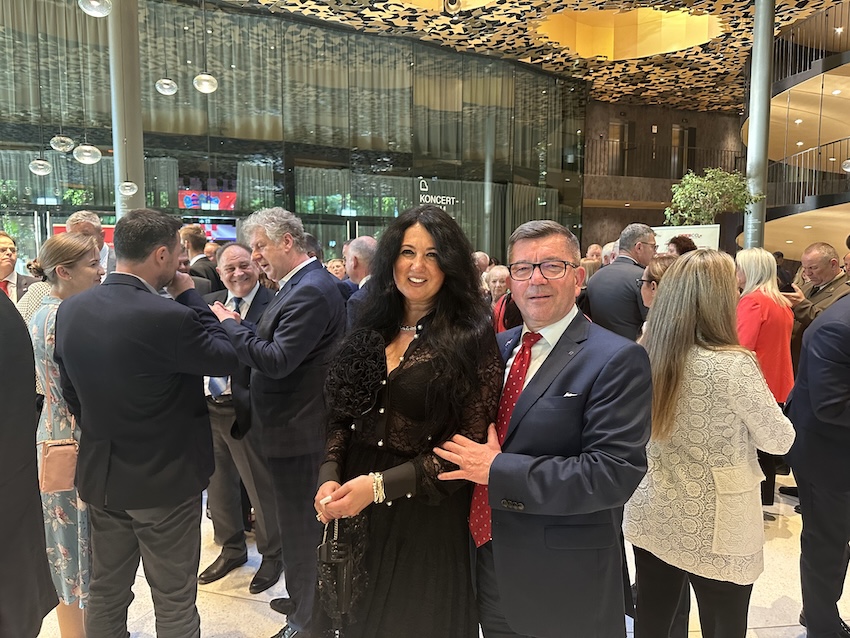
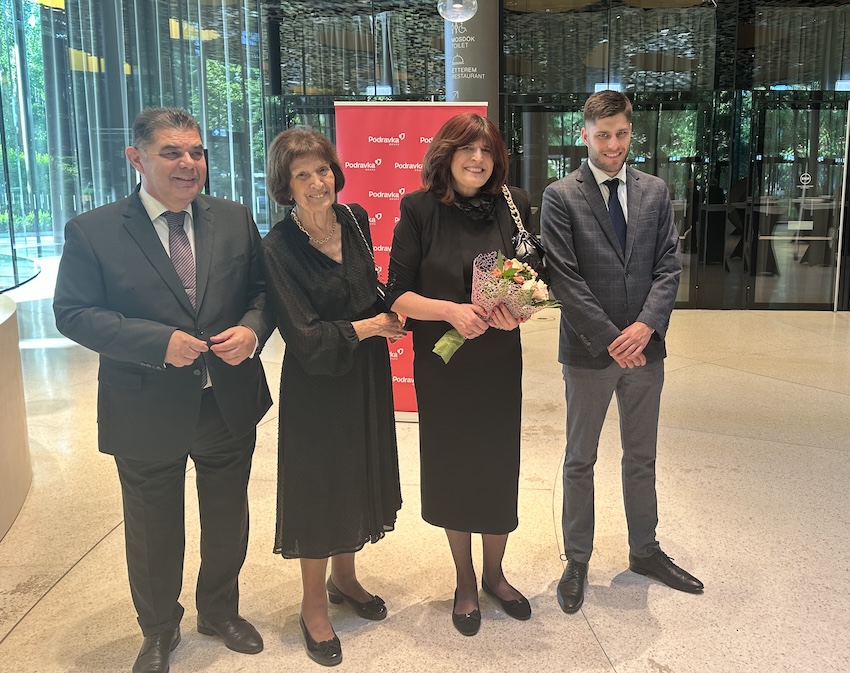
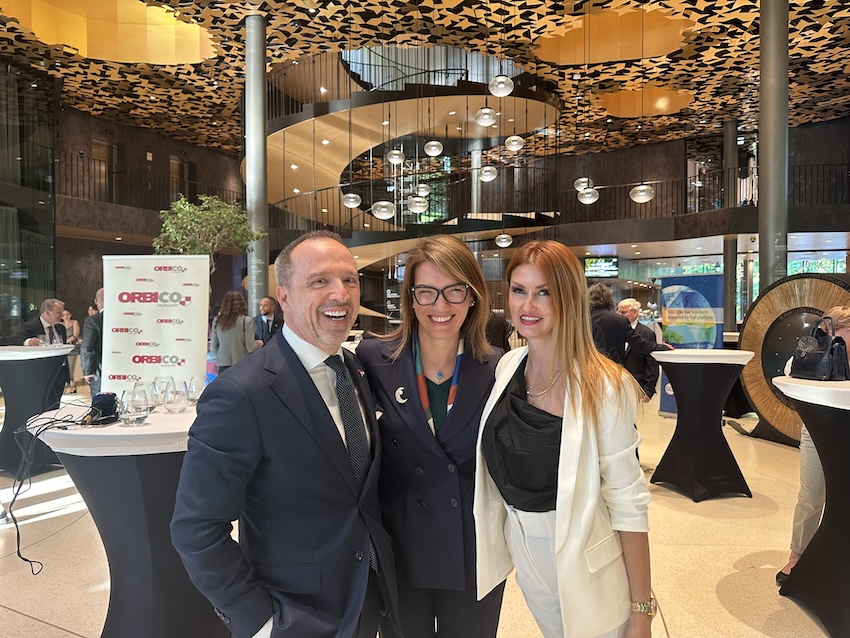
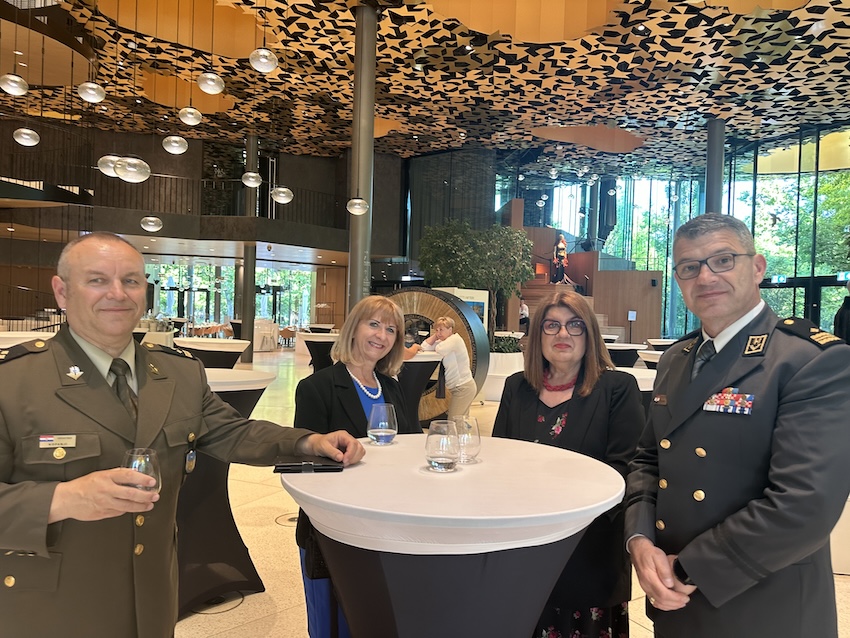
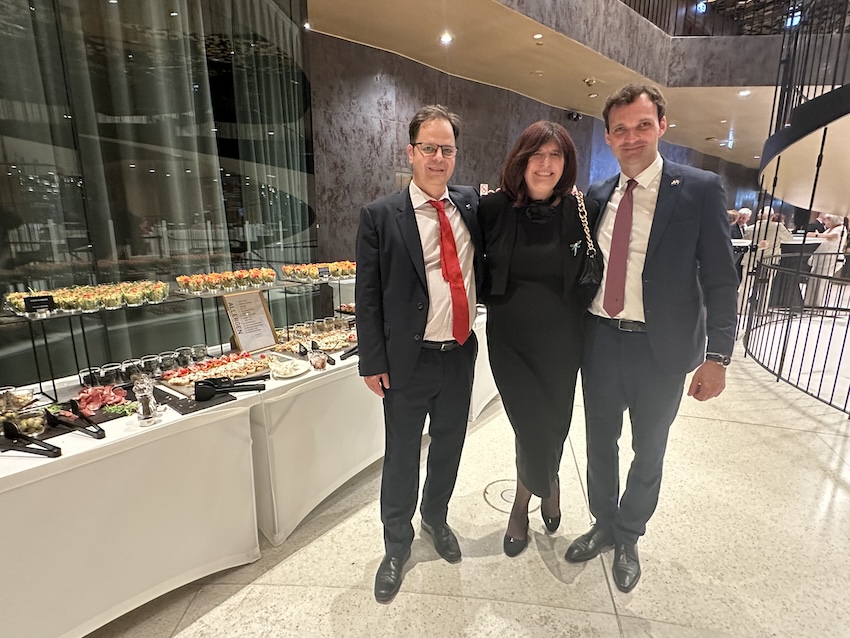
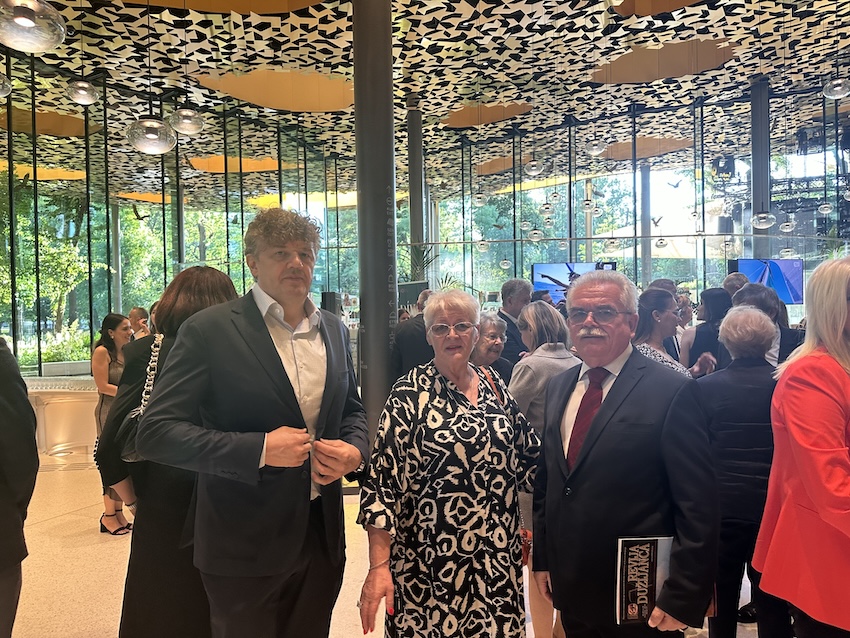
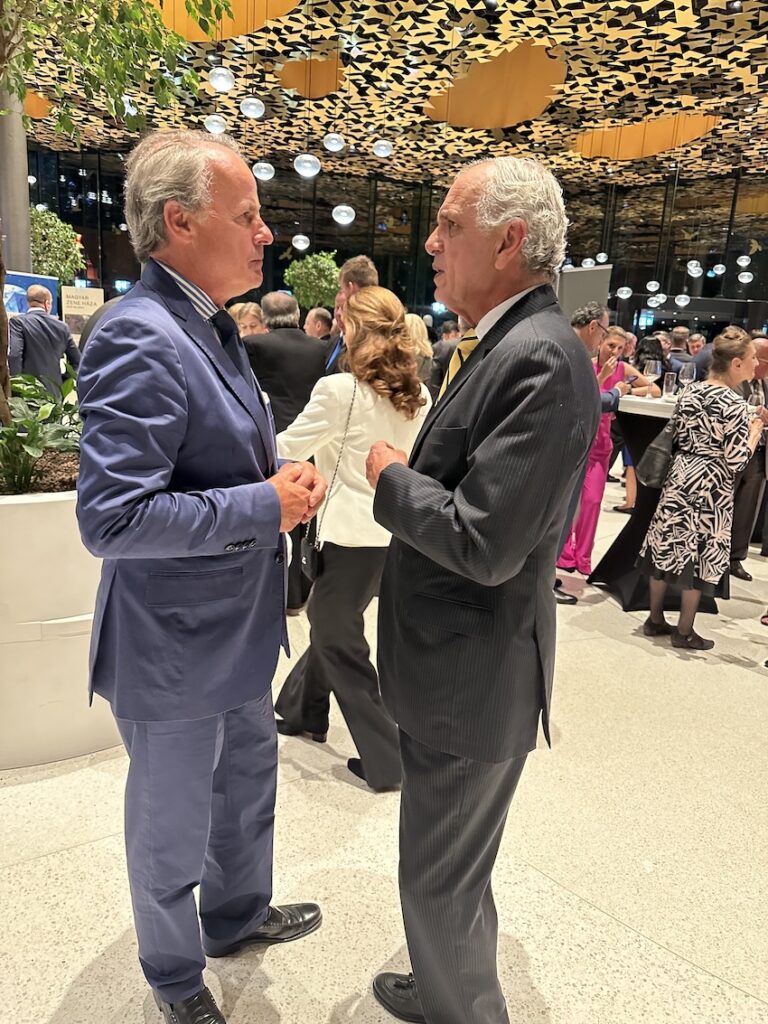
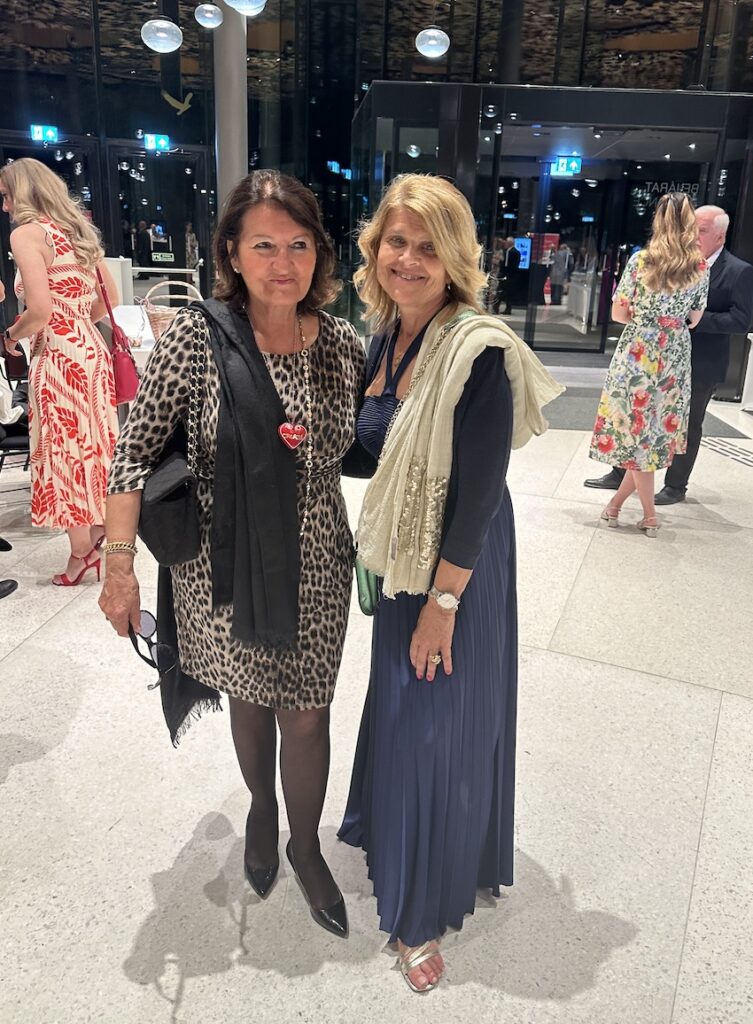
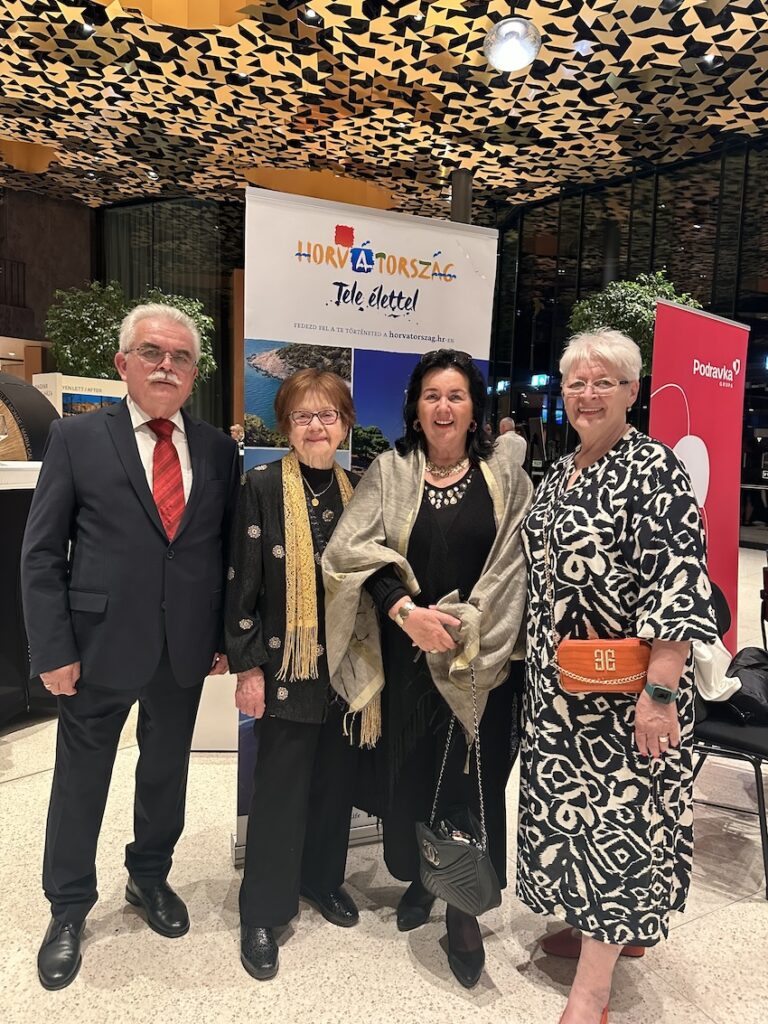
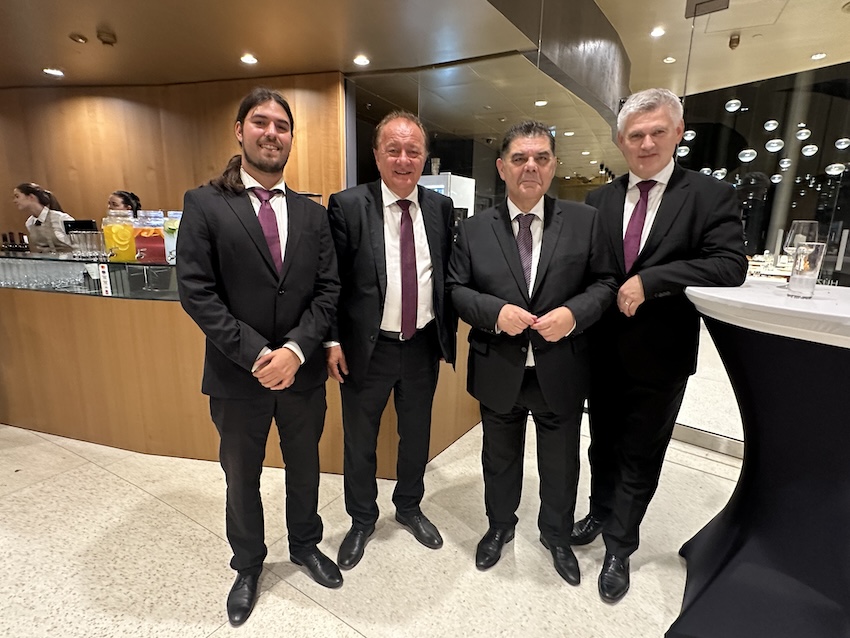
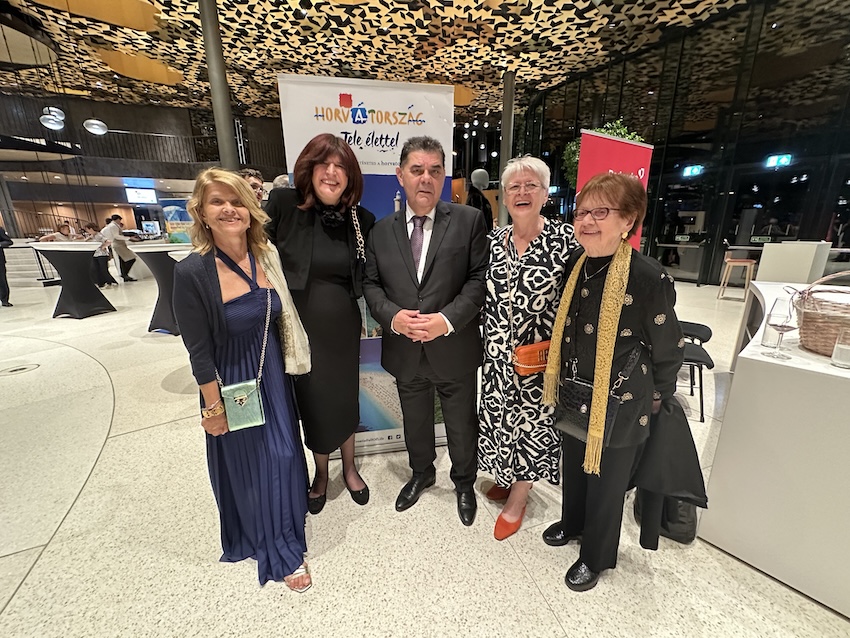
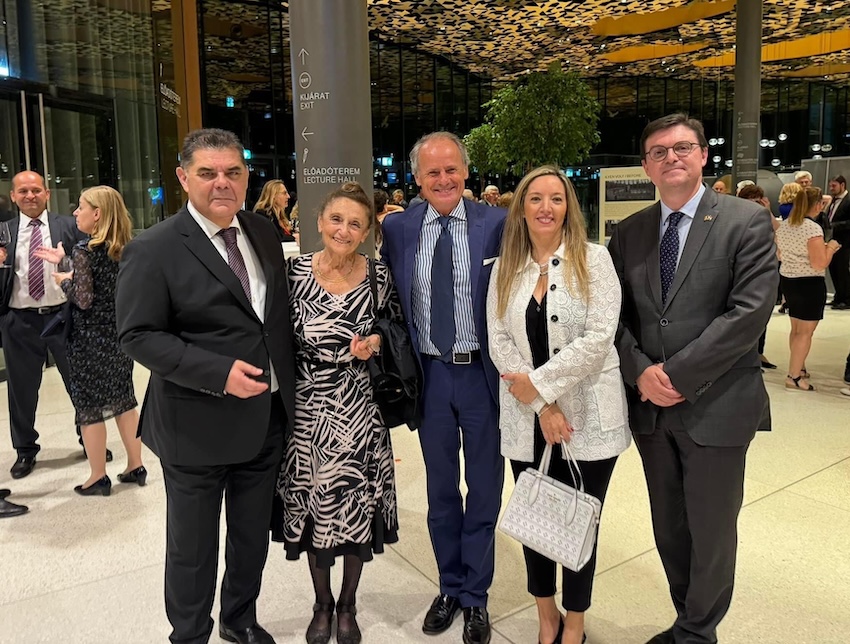
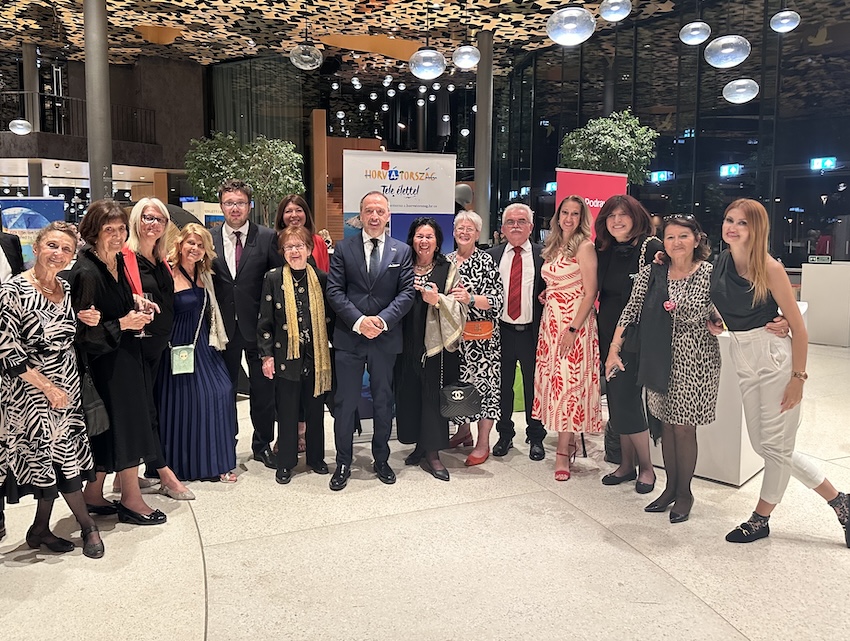
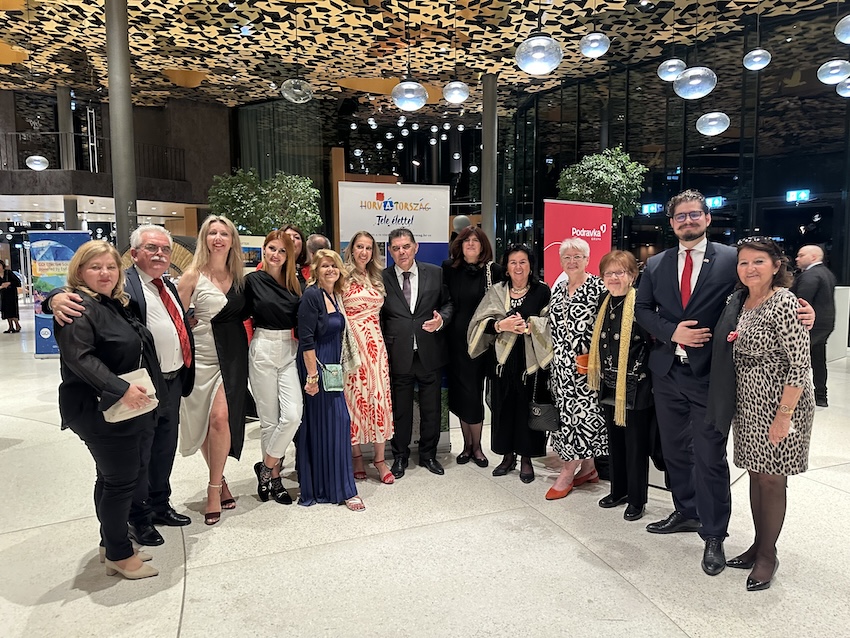
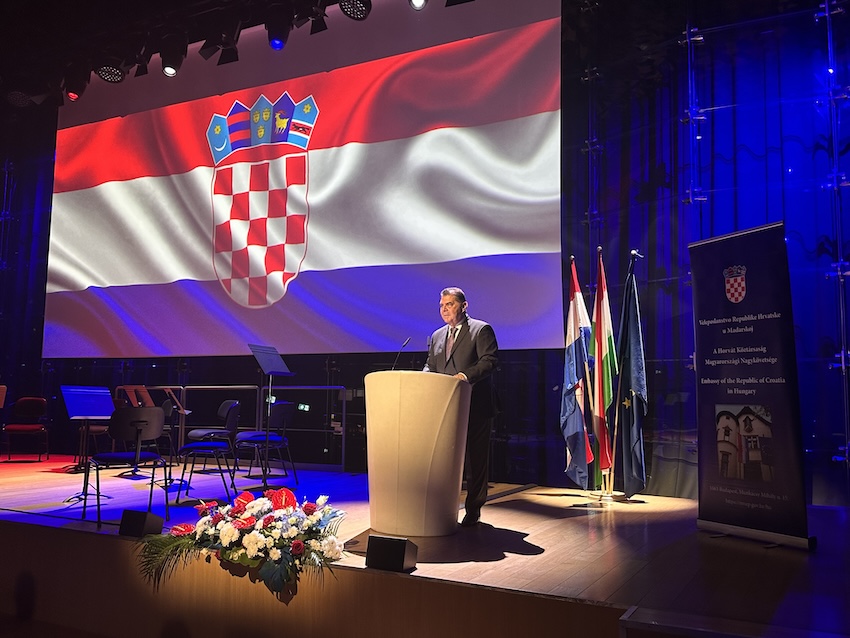
In his speech, Ambassador Andrlić addressed the distinguished audience, sharing his reflections and thoughts on the historical significance of the anniversary:
“Dear Minister Tibor Navracsics, Ms. Vanda Babić Galić, Special Envoy of the Croatian Minister of Foreign and European Affairs, Excellencies, Distinguished Guests and Friends, Hrvatice i Hrvati, Kedves Magyar Barátok, I am really honoured to greet you all in this splendid Hungarian House of Music, where we mark again the Statehood Day of the Republic of Croatia.
This celebration has a special place in our hearts, as it reminds us of 30th May 1990 and the first democratic elections. Moreover, this year we mark our 15th NATO anniversary, as last year’s event was dedicated to Croatia’s 10 years of EU membership! Thus, Croatia managed to achieve the two key goals set by the first Croatian President Mr. Franjo Tuđman; first, to join the society of a free world united in democracy, and second, to join NATO and the EU.

Today we can say that we did it! Croatia enjoys the benefits of EU and NATO prosperity and security. Macroeconomic performance is highly improved by joining the Eurozone and the Schengen area. Croatia’s growth rates of 3.9 percent in 2024 currently make us No. 1 in the EU.
In this context, Croatian Prime Minister Mr. Andrej Plenković often emphasizes the principle of ‘modern sovereignty’. Being sovereign within a larger framework enables us to co-decide upon the most important issues not only in Europe but worldwide!
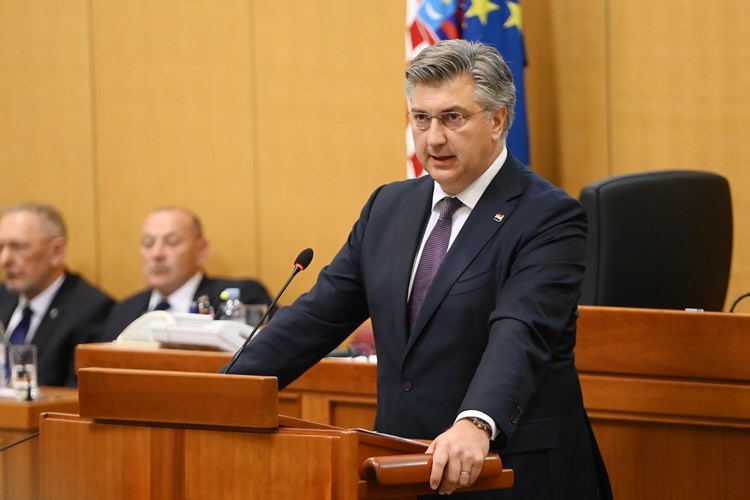
That is why Croatia sees the EU as more competitive, resilient and prosperous in the coming years, well equipped to protect its citizens and their well-being, and with a more credible and influential role in the world.
It is well known that Croatia supports the EU enlargement, namely to the Western Balkans and the Eastern Partnership, particularly towards Ukraine, suffering from brutal Russian aggression. Therefore, any disrespect of international law or even denial of genocide has no place in the European family! The point is to fulfil the criteria and align with EU values and standards.
Let me quote my Foreign Minister Mr. Gordan Grlić Radman: ‘… we should not be afraid of our capacities, since we can work in parallel on the enlargement and the internal reforms’.
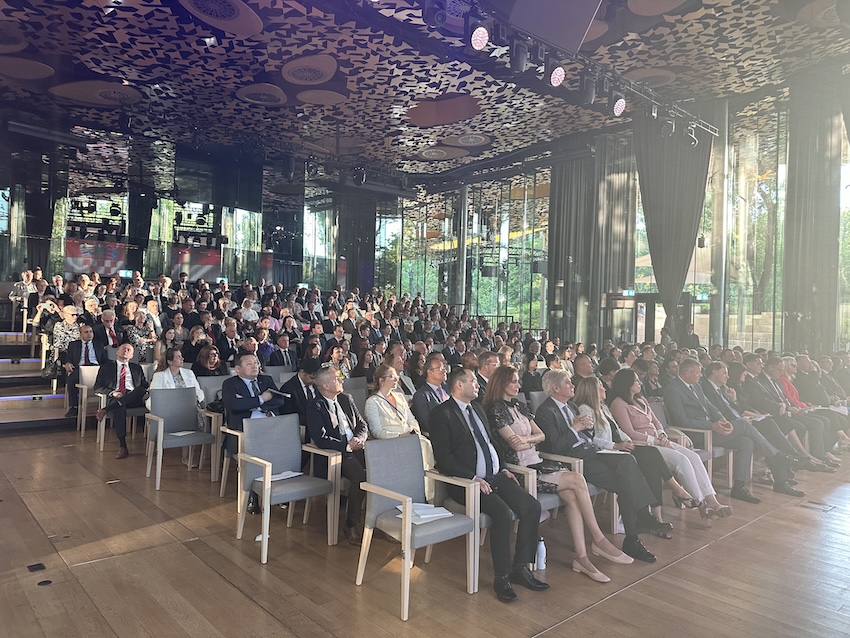
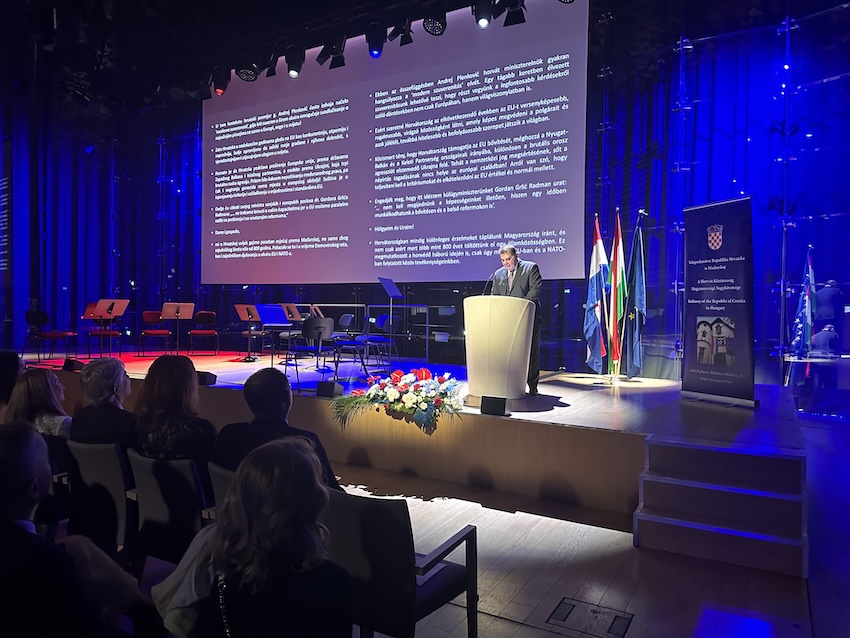
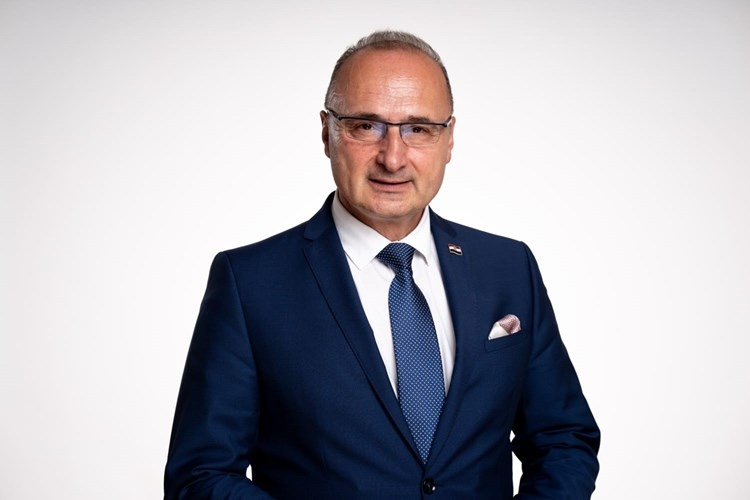
Ladies and Gentlemen, We in Croatia do always have a special feeling towards Hungary, not only because of living together for over 800 years. It has been also shown in the times of the Homeland War, as well as in our joint activities within the EU and NATO.
The official visit of Croatian President Mr. Zoran Milanović, who together with the Hungarian President attended the opening celebration of the European Capital of Culture in Veszprém, confirmed this as well.
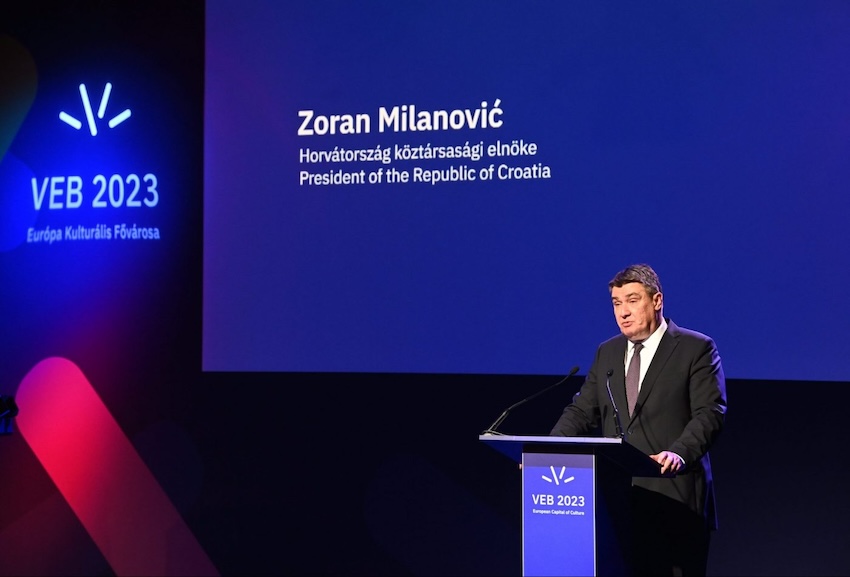
Our cooperation is strong and dynamic in energetics, culture and tourism, but also in internal affairs and joint combat against illegal migration and organised crime, as well as in the field of defence, especially through the activities of the NATO Multinational Division Command Centre based in Székesfehérvár, where Croatian Brigadier General Mr. Dražen Ressler, who is also here with us tonight, serves as Chief of Staff.
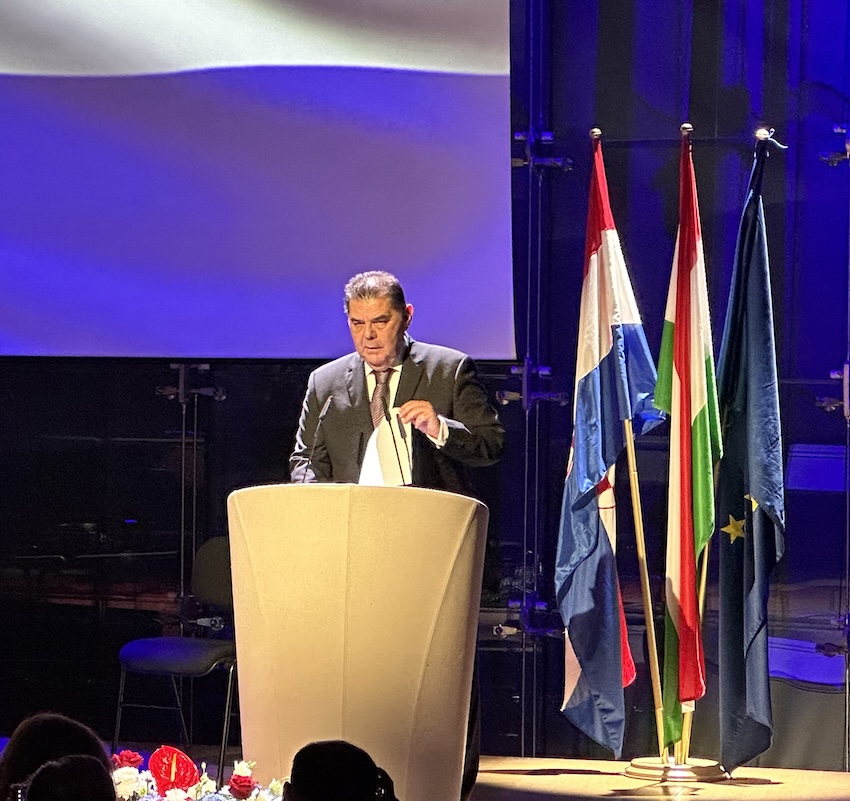
Finally, I would like to stress the upcoming Hungarian Presidency of the Council of the EU and its importance to secure a smooth introduction of the newly-elected European Parliament and European Commission, and manage the institutional changes.
We wish the Hungarian Presidency all the best!
Last but not least, let me greet here the Croats living in Hungary, who have proven to be a true added value to our bilateral relationship! Mutual cooperation and understanding, fair representation and harmonious relations, with the efficient protection of Hungarians in Croatia and Croats in Hungary, are exceptional values internationally. Thus, even the 1st Meeting of Representatives of the Croatian national minority and Croats abroad, held in Novalja on the Island of Pag in 2023, was dedicated to the achievements of Croats in Hungary.
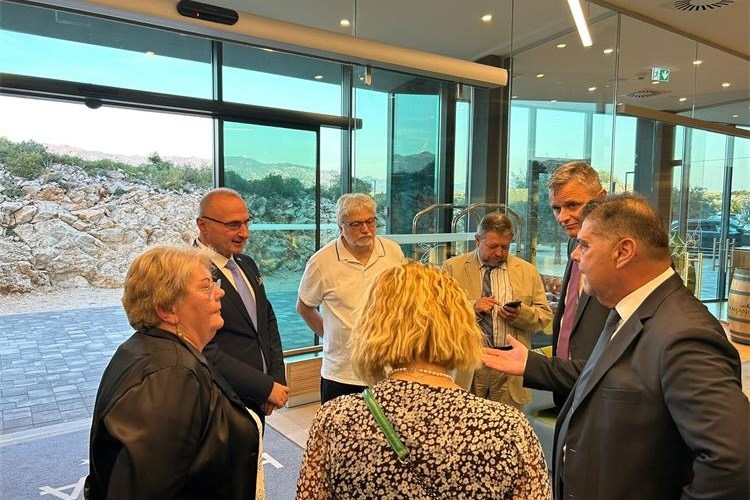
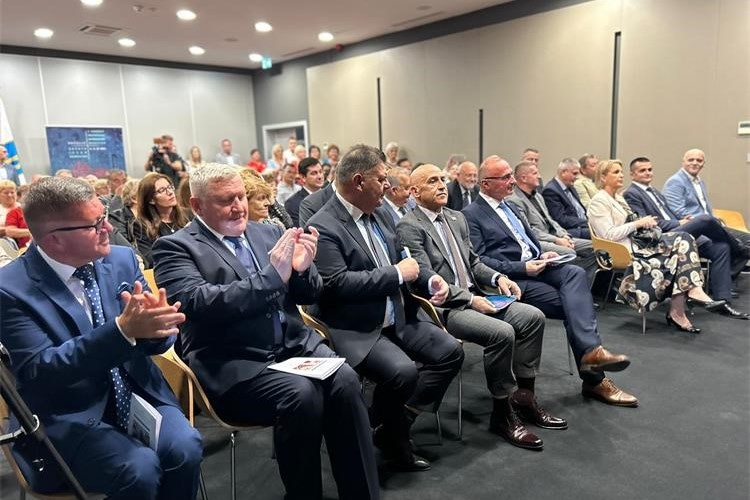
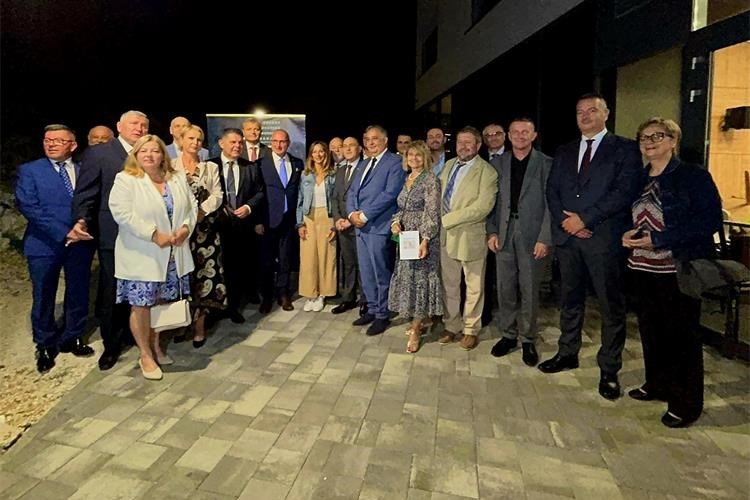
I would also like to thank the Croatian National Tourist Board as our major partner this evening, as well as our sponsors – GDI, Orbico, Podravka, and Vinum Academicum.
At the very end, I express my gratitude to my family and Embassy staff for all their efforts, especially in preparing this event with the most splendid organisers of the Hungarian House of Music and the Rampart Catering.”
“Long live Croatia! Long live Hungary! Thank you! Hvala!”
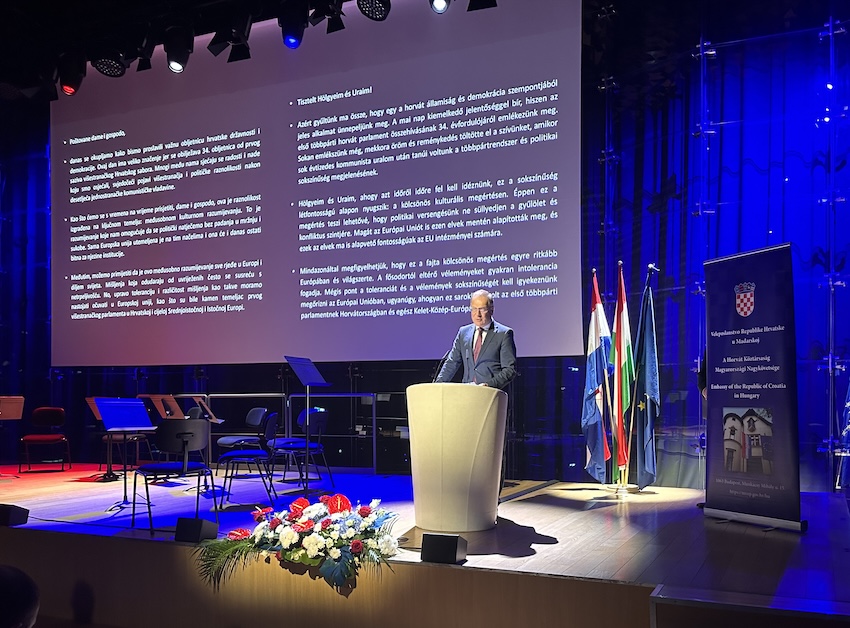
Representing the Hungarian Government, Mr. Tibor Navracsics Minister for Regional Development and EU Funds was invited to the stage to deliver his speech:
“Dear Ladies and Gentlemen, we have gathered today to celebrate Croatian statehood and democracy.This occasion is particularly significant as we commemorate the 34th anniversary of the constitution of the first multi-party Croatian Parliament. Many of us still recall the immense joy and hope that filled our hearts when we witnessed the advent of a multi-party system and the emergence of political plurality after many decades of communist rule.
Ladies and Gentlemen, it is crucial to remind ourselves that this multifaceted political landscape rests on a vital foundation: deep cultural understanding. This understanding enables our political competition to remain free from hatred and conflict. The European Union itself was founded on these principles and they continue to be fundamental to the EU institutions.
However, it can be observed that such mutual understanding is becoming rarer both in Europe and worldwide. Opinions that differ from the mainstream are often met with intolerance. Yet, we must strive to retain tolerance and diversity of opinions within the European Union, just as they were the cornerstones of the first multi-party parliament in Croatia and throughout Central and Eastern Europe.
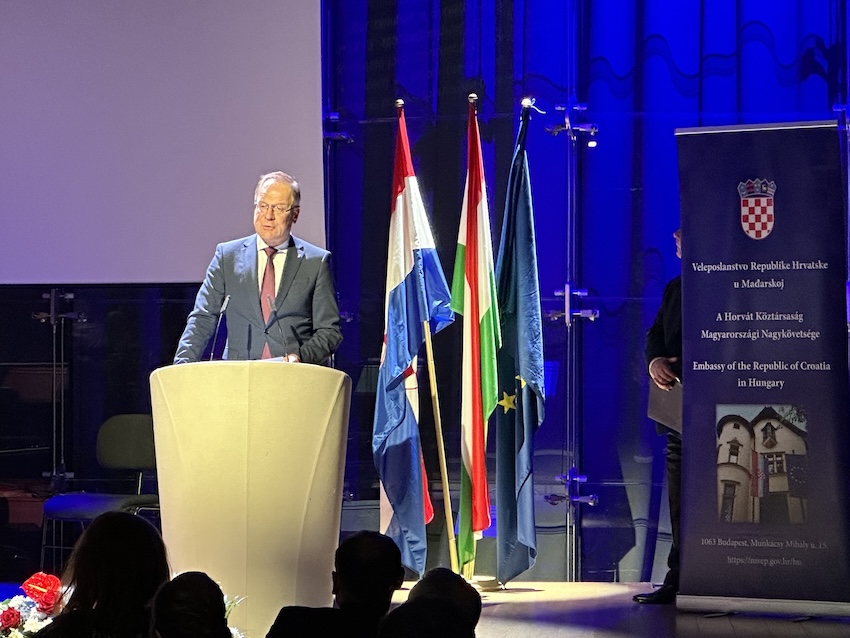
European unity is more important than ever, but it cannot be achieved by forcibly unifying opinions, parties and politicians. We are all aware of the consequences when a large, artificially created state or empire attempts such unification. Our Croatian friends understand the pitfalls of such endeavours better than anyone else.
To achieve a respectable and stable European unity, we must nurture and strengthen cultural and political understanding. This is the only way to prepare Europe for future challenges and to lead it forward in line with the vision of its founding fathers.
Finally, Ladies and Gentlemen, Europe can learn much from post-socialist countries like Croatia. We understand well the importance of a multi-party system and independent nation-states for a prosperous, forward-looking future. Over the past 34 years, and especially in the last eleven, Croatia has demonstrated that the introduction of a multi-party system based on mutual understanding and political diversity enhances European values.”
“Thank you for your attention!”
The eagerly anticipated moment came when, at the invitation of Ms. Marina Sikora, Diplomatic Counsellor of the Embassy, the Zagreb Soloists ensemble entered the hall and gracefully took their positions on stage. Founded in 1953 as part of Radio Zagreb, this 12-member string orchestra was introduced. Renowned for its extensive repertoire, the ensemble has given hundreds of concerts since its inception, presenting a wide range of music. They excel in baroque, classical, romantic and contemporary pieces by both Croatian and internationally acclaimed composers.
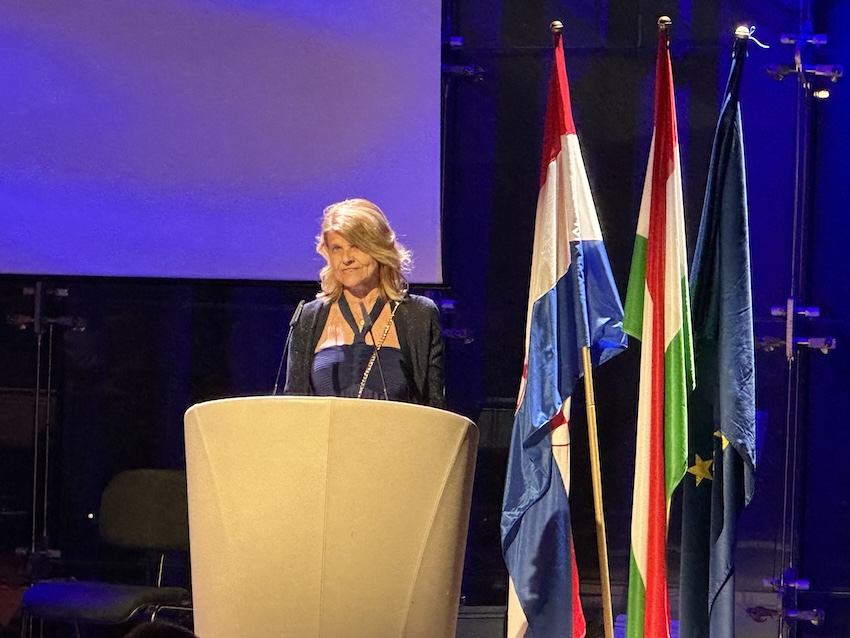
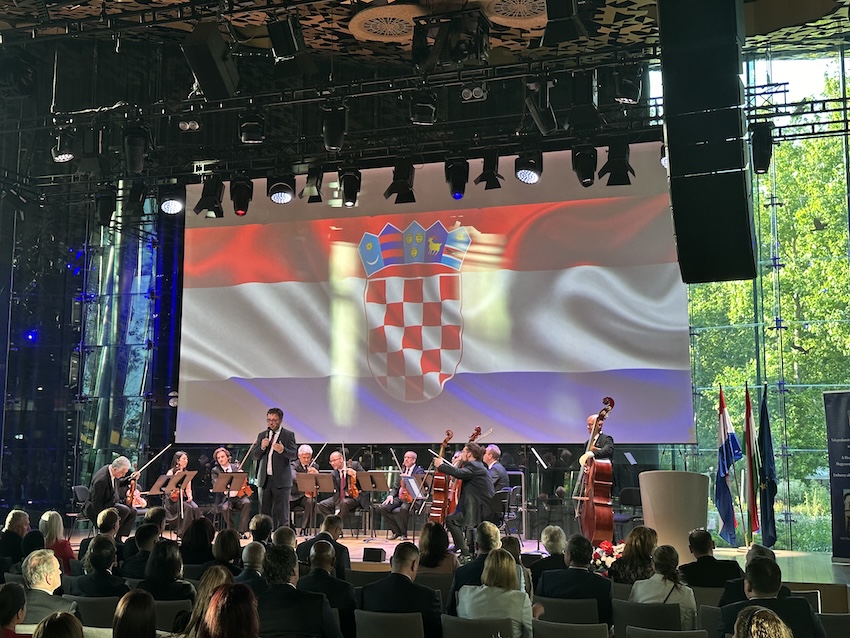
Their program, specially curated for this festive occasion, featured masterpieces by Croatian composers: Luka Sorkočević’s Third Symphony, Amando Ivančić’s Ninth Symphony, Boris Papandopulo’s Pintarichiana, and Frano Parać’s Musica Barocchiana for Two Violins and Strings. As a gesture of appreciation to the host country, they concluded with Leó Weiner’s Divertimento for Strings from Hungary.
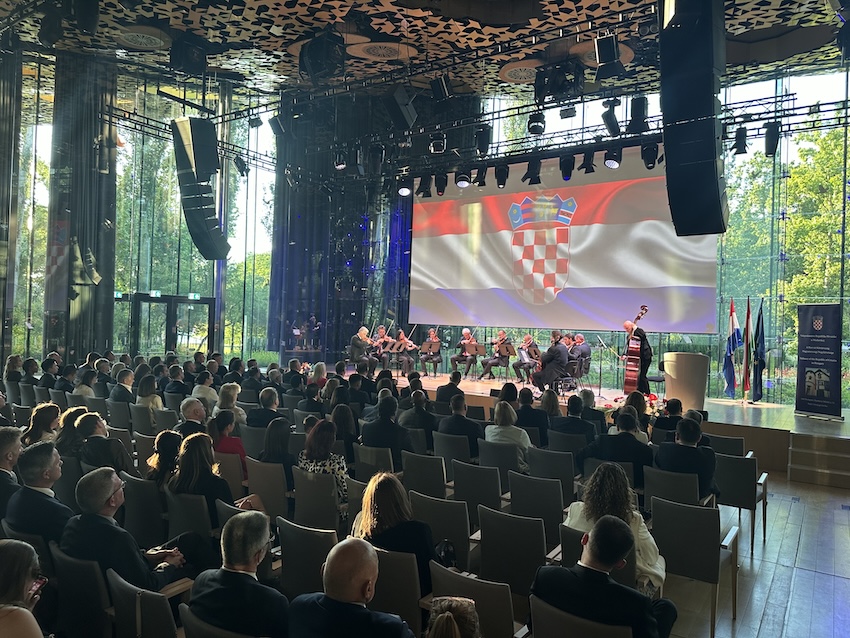
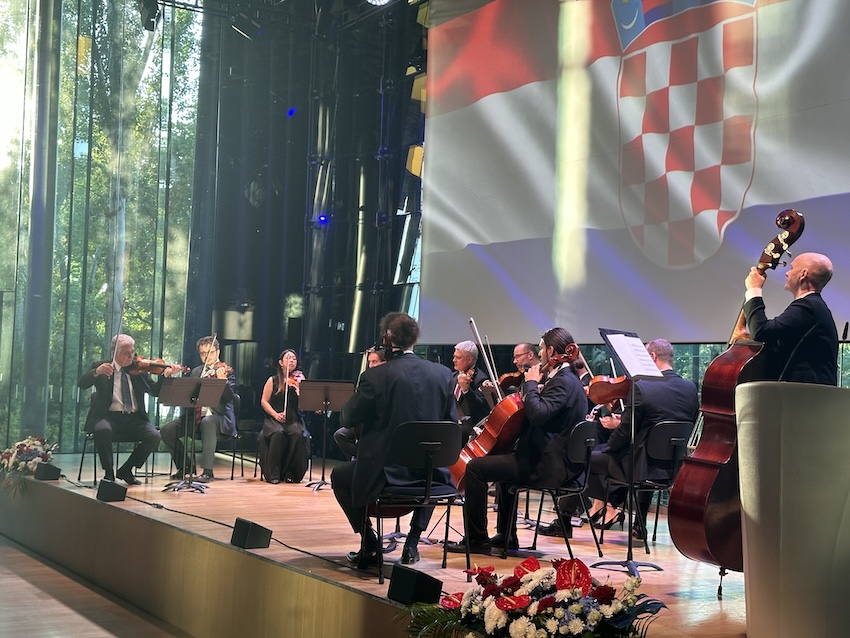
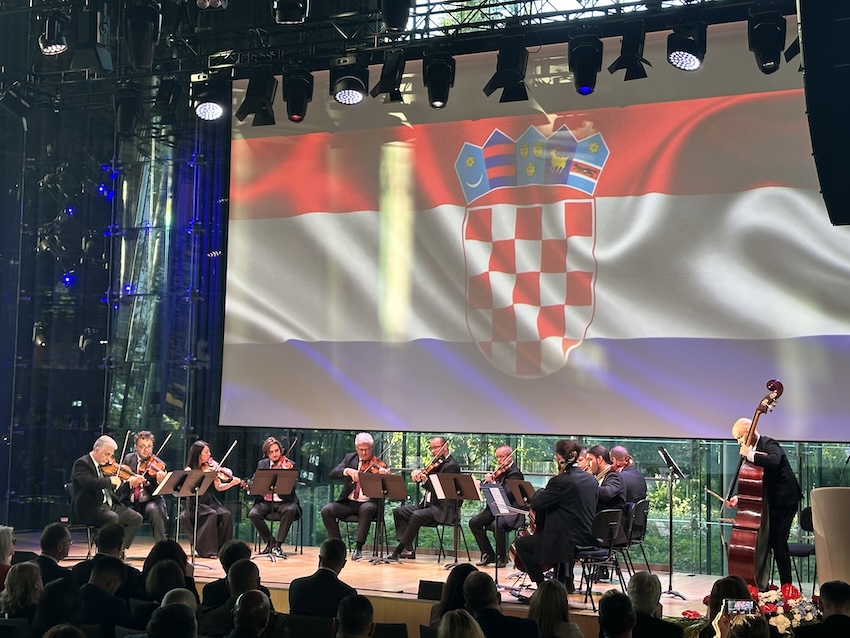
The ensemble delivered an outstanding performance, which was greeted with enthusiastic applause from the international audience. The concert took place in a modern, professionally equipped hall in the House of Music, featuring large window walls that created a special atmosphere and offered a picturesque view of the lush greenery in City Park. This unique experience was greatly appreciated by the guests.
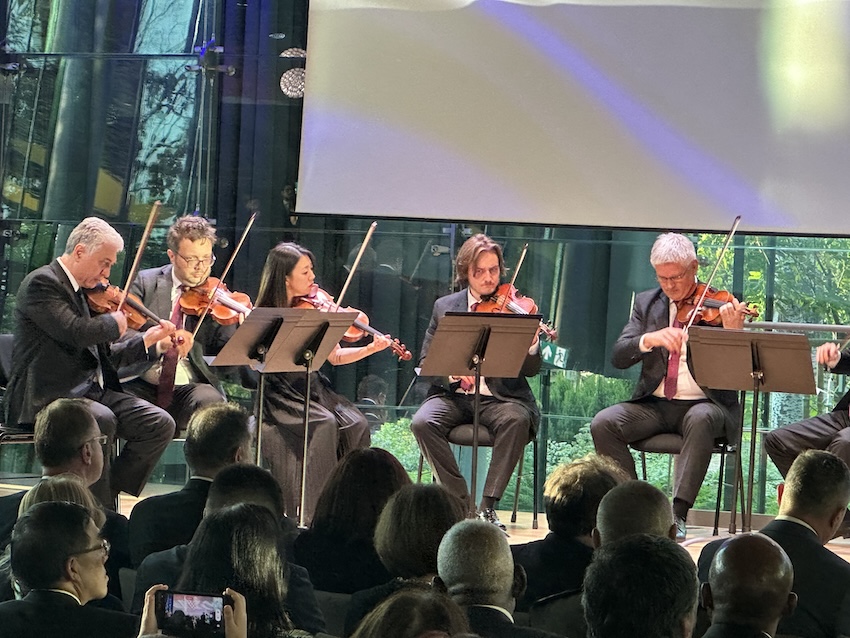
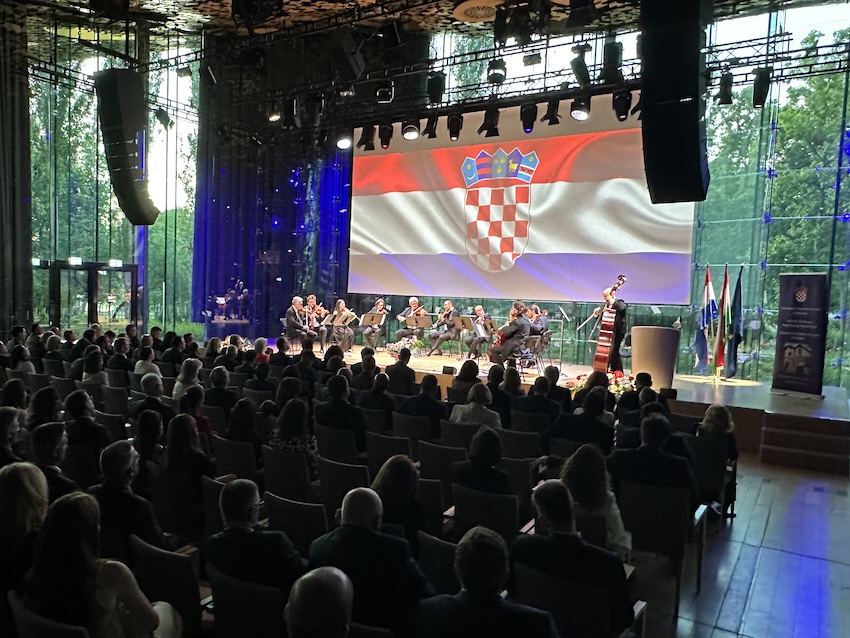
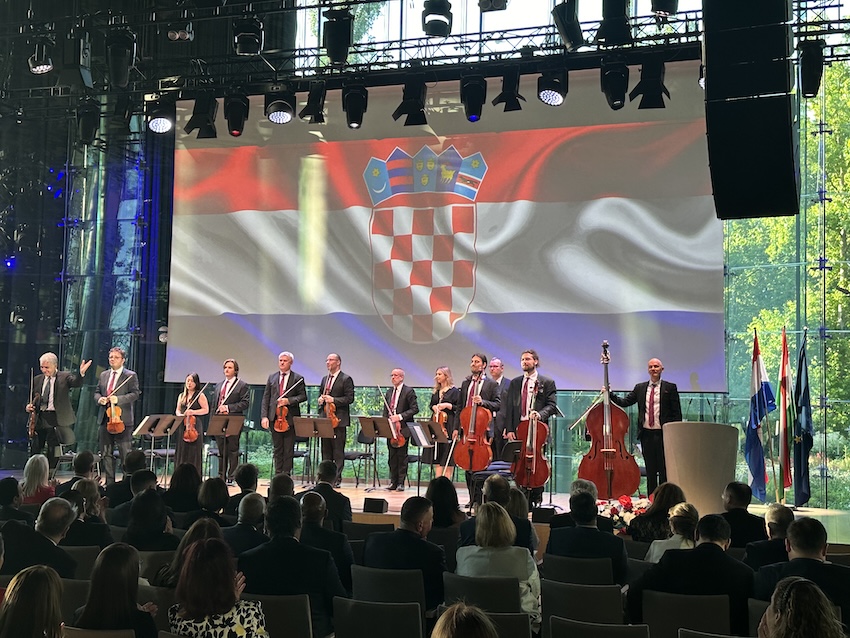
The event concluded with a reception in the lobby beneath the remarkable roof of the House of Music, adding a unique touch. Guests enjoyed specialties from Croatian gastronomy paired with their wines.
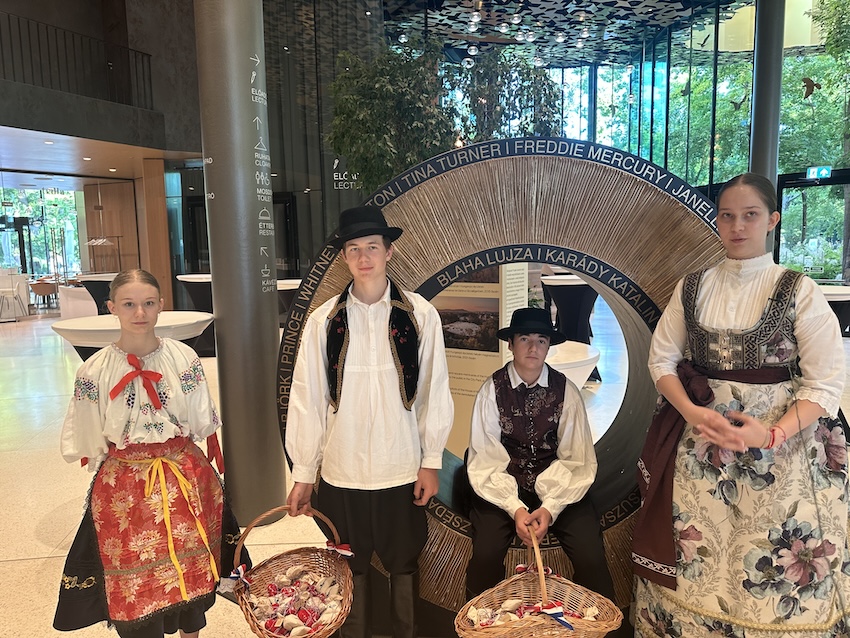
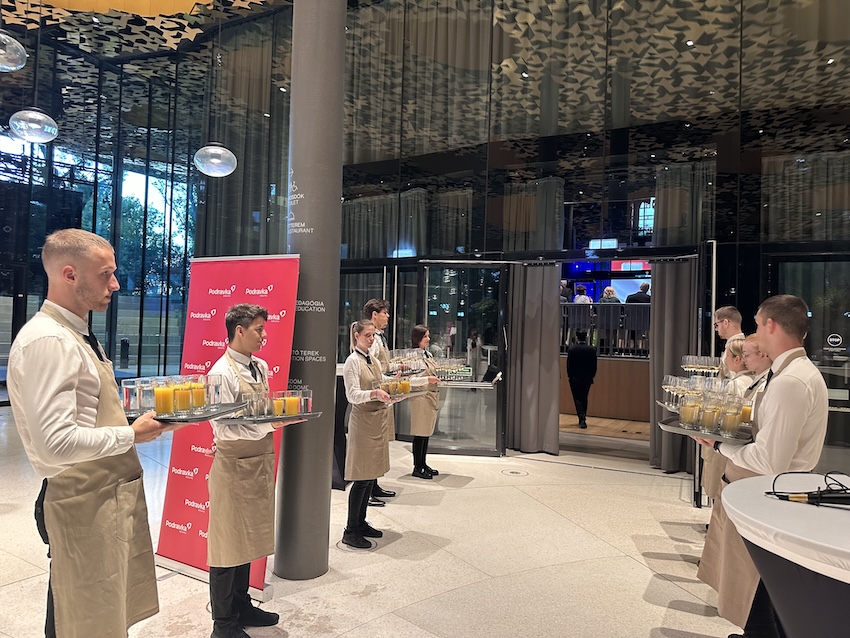
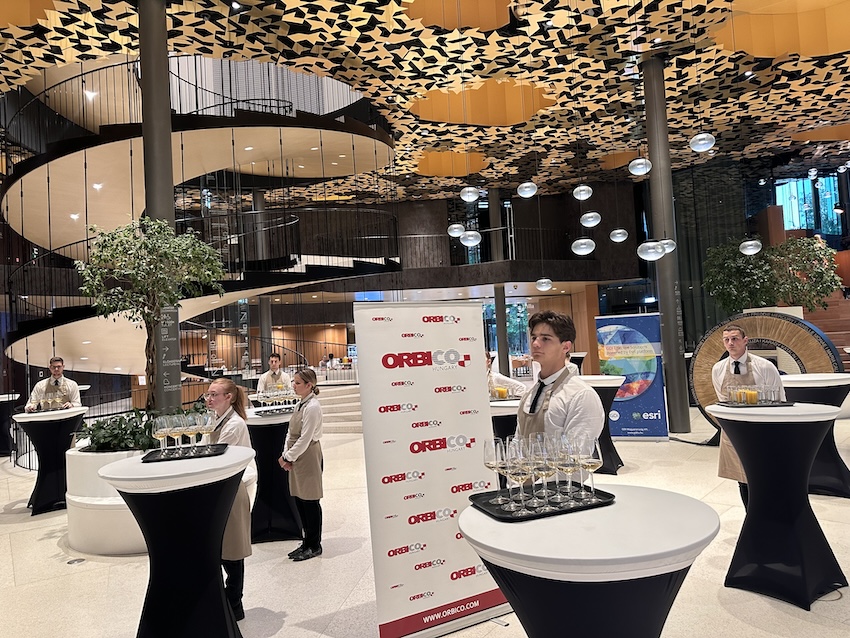
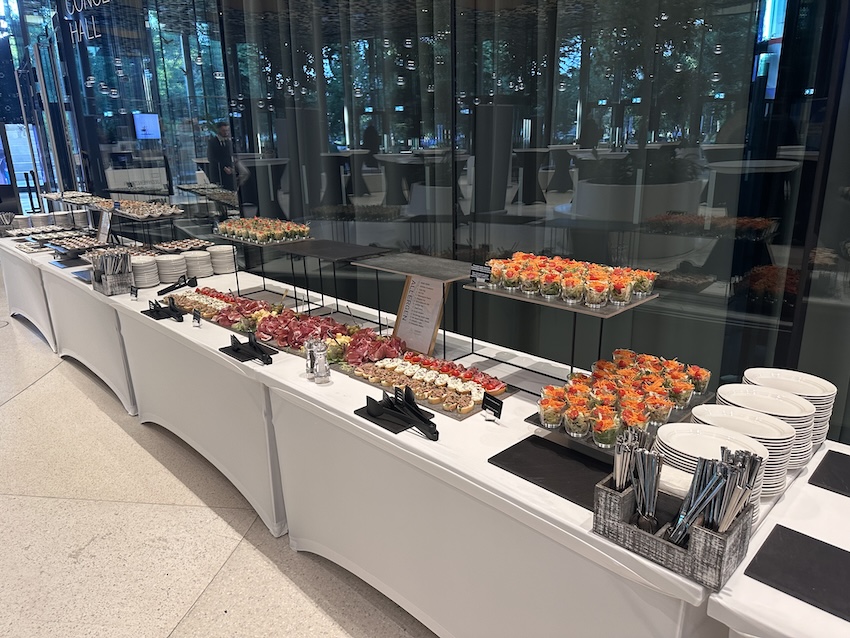
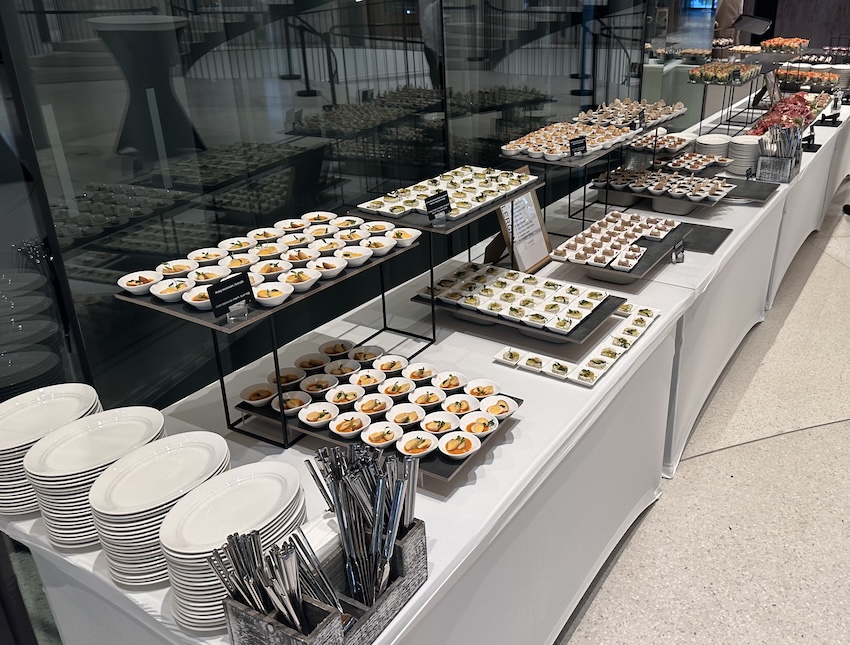
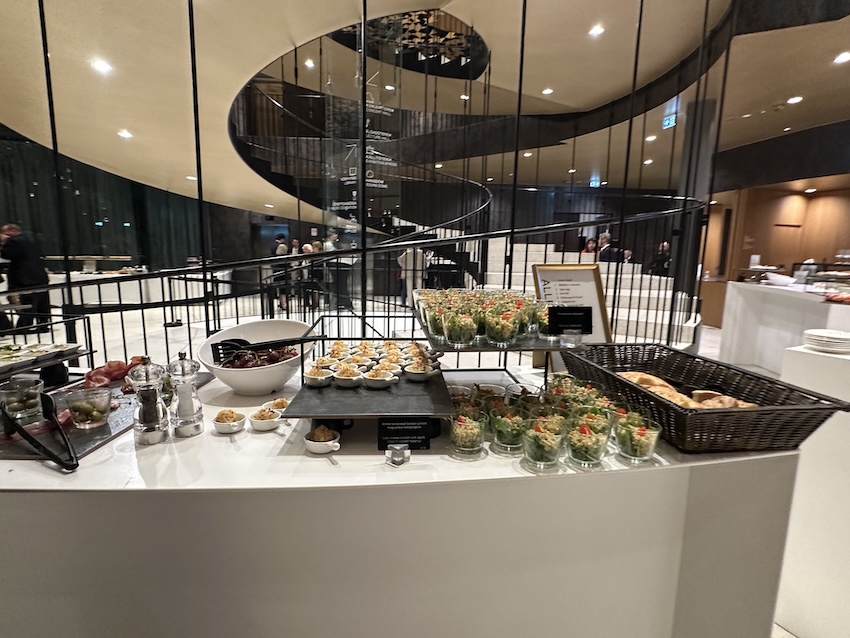
Source: Embassy of the Republic of Croatia in Budapest
Photos by Neda Maretikj, Embassy of Croatia, and DPA

